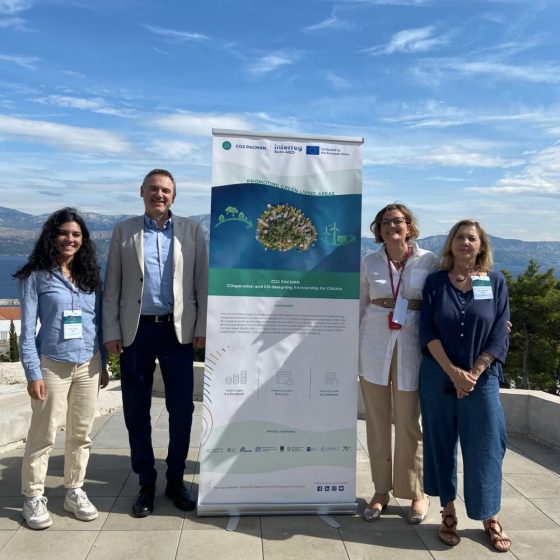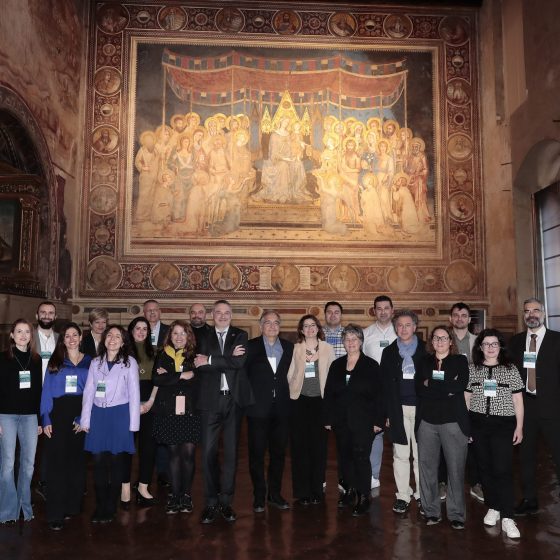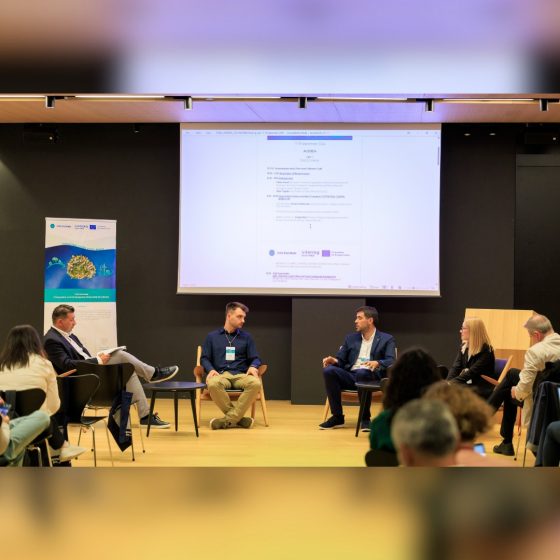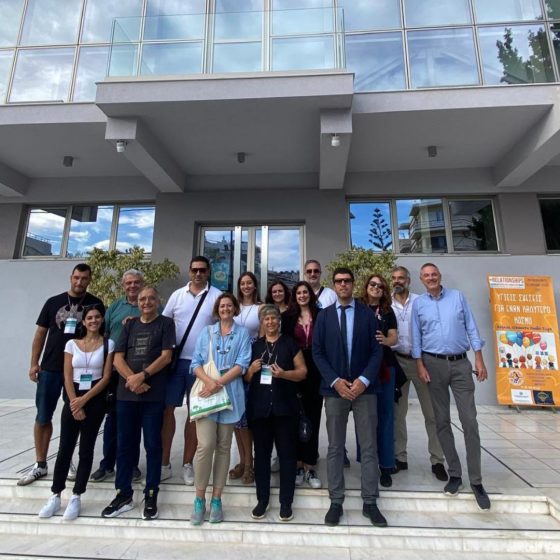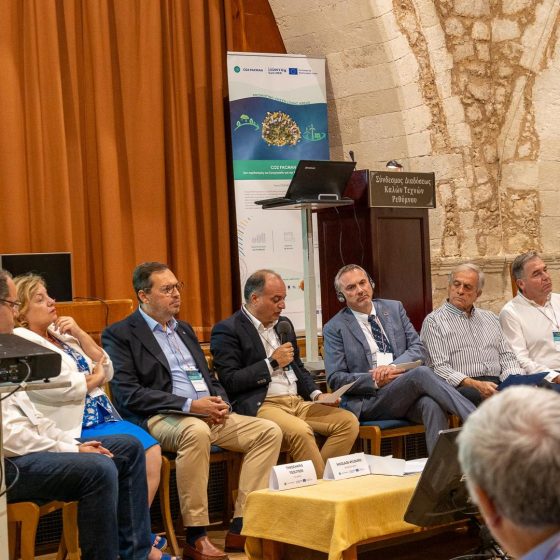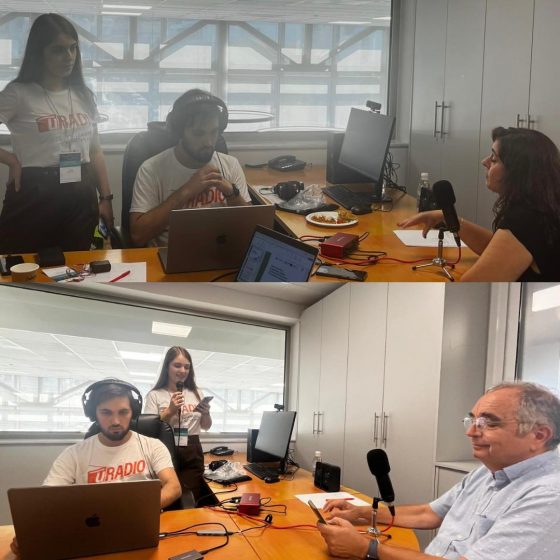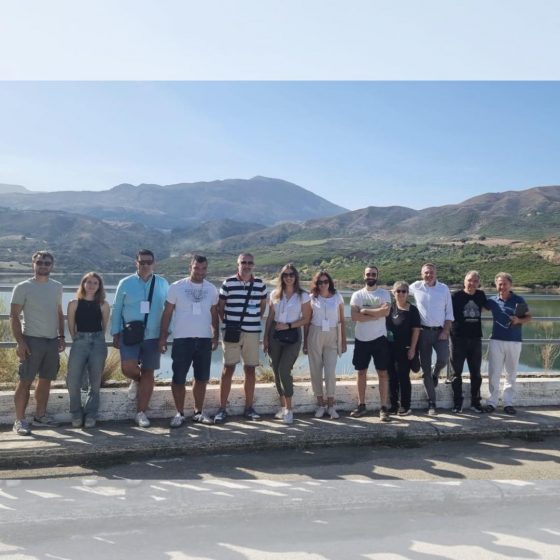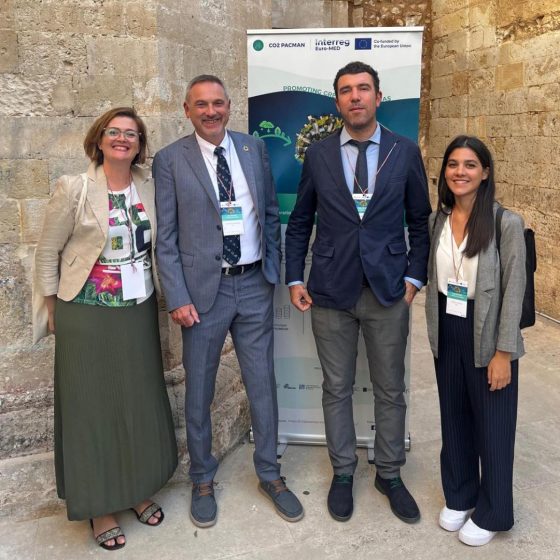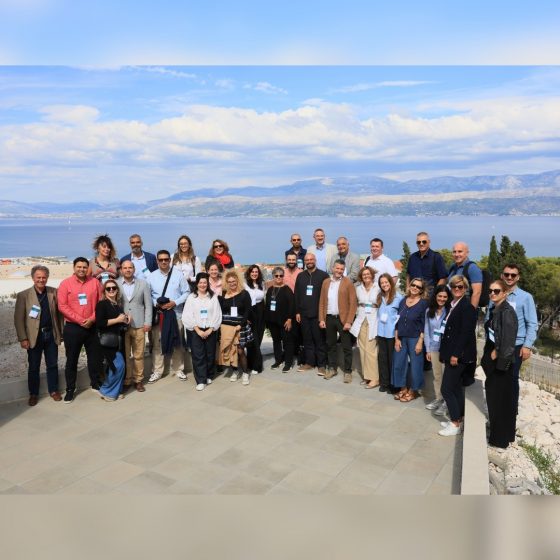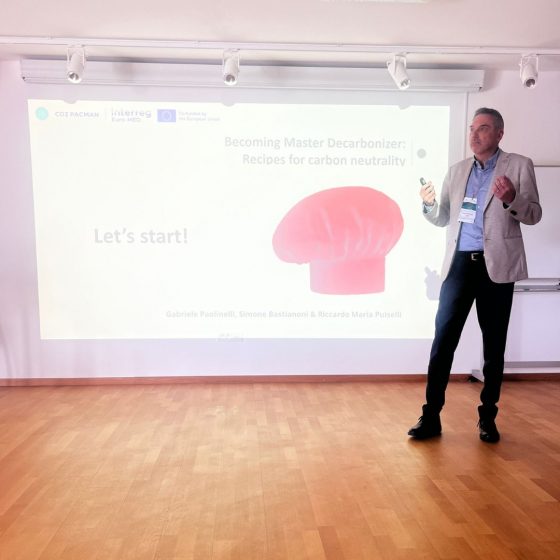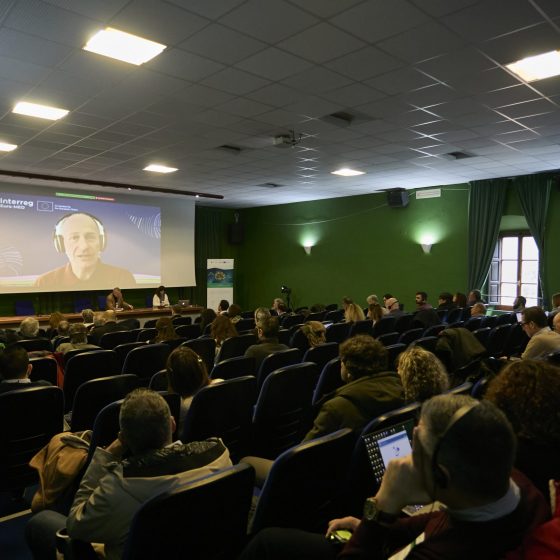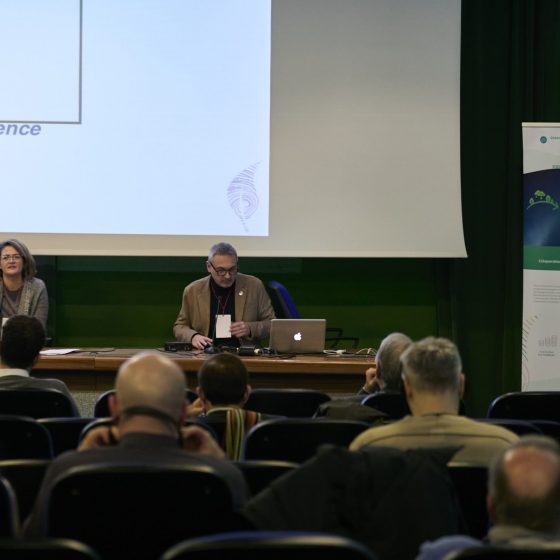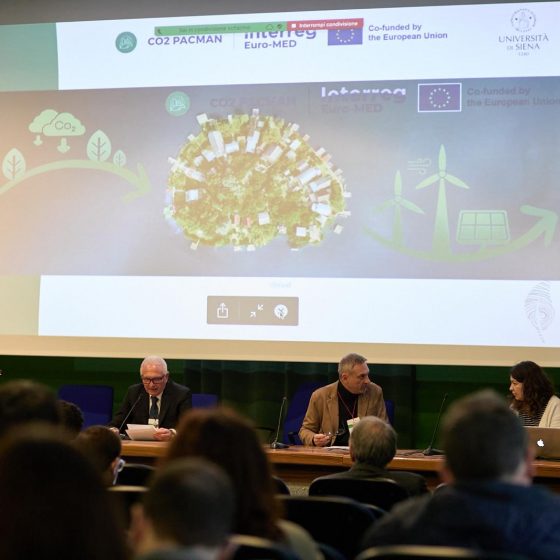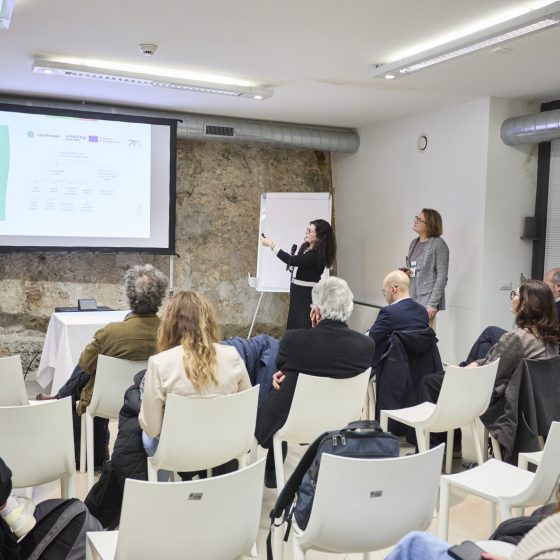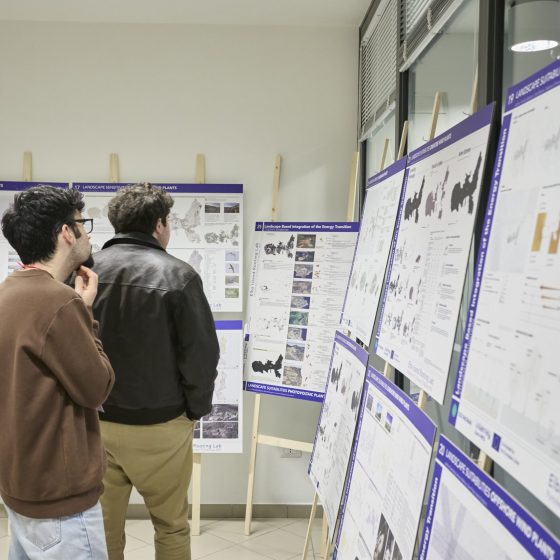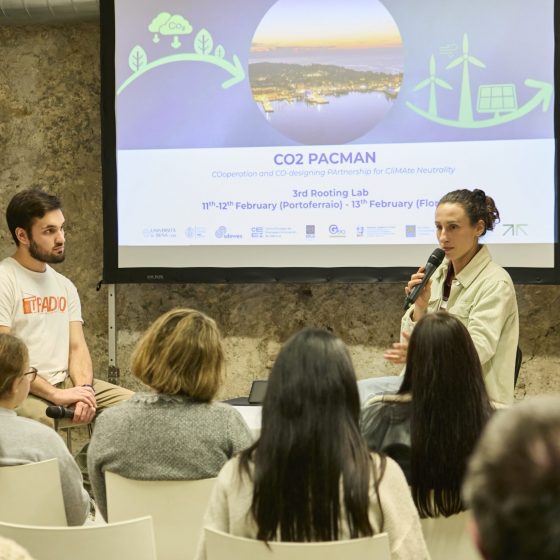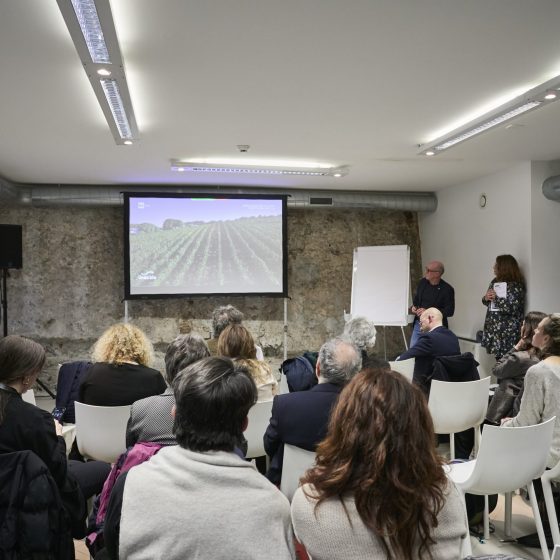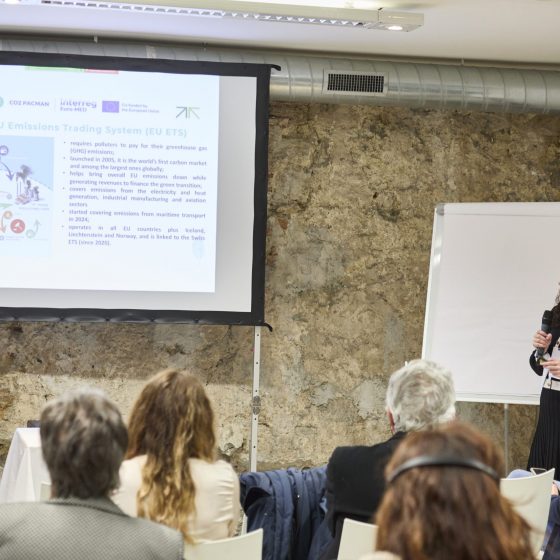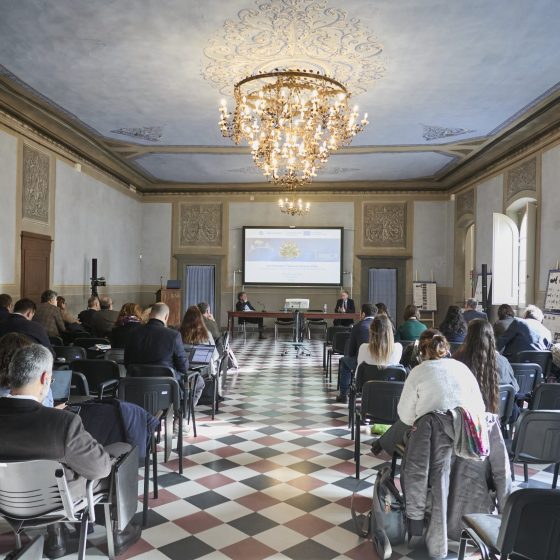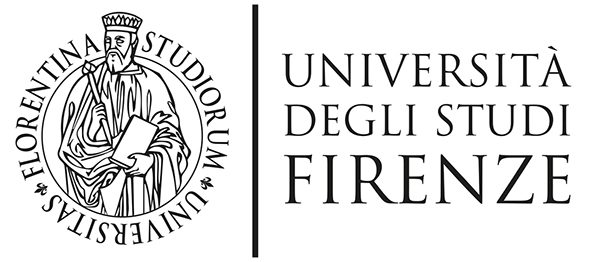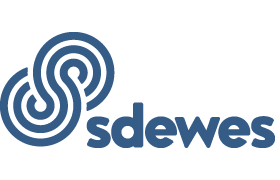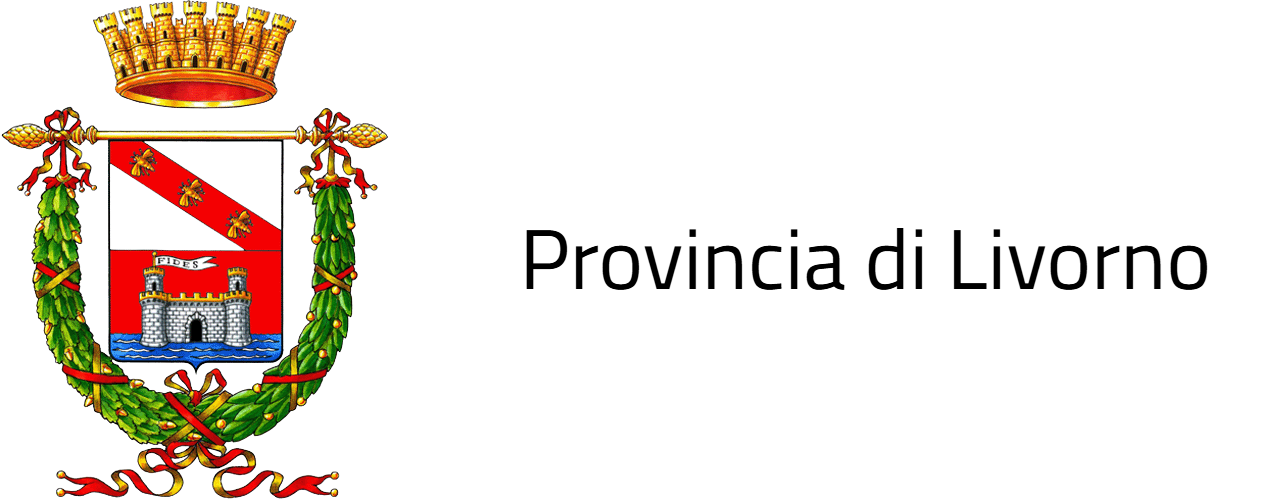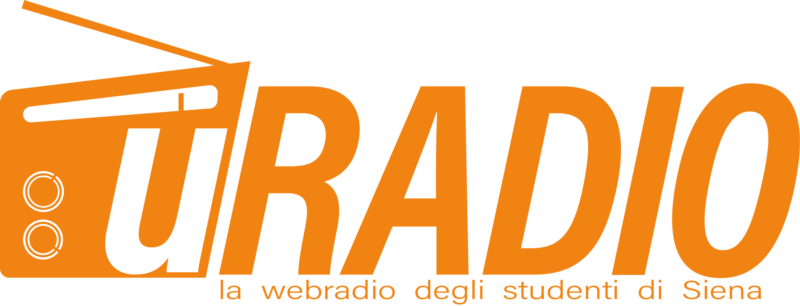Building on outcomes and tools from the previous projects Interreg Med BLUE DEAL and COMPOSE Plus and the FP7 CityZen, CO2 Pacman will provide knowledge and tools to drive the implementation of integrated strategies and policies for the challenge of climate change mitigation and adaptation; with this purpose it will engage public authorities, citizens and stakeholders in co-creation of scenarios for the transition towards climate neutral islands.

Title: COoperation and CO-designing PArtnership for CliMAte Neutrality (CO2 PACMAN)
Funding programme:
Interreg Euro-MED
Timeframe:
01/2024 – 10/2026
(33 Months)
Budget: 2,7 millions of Euro
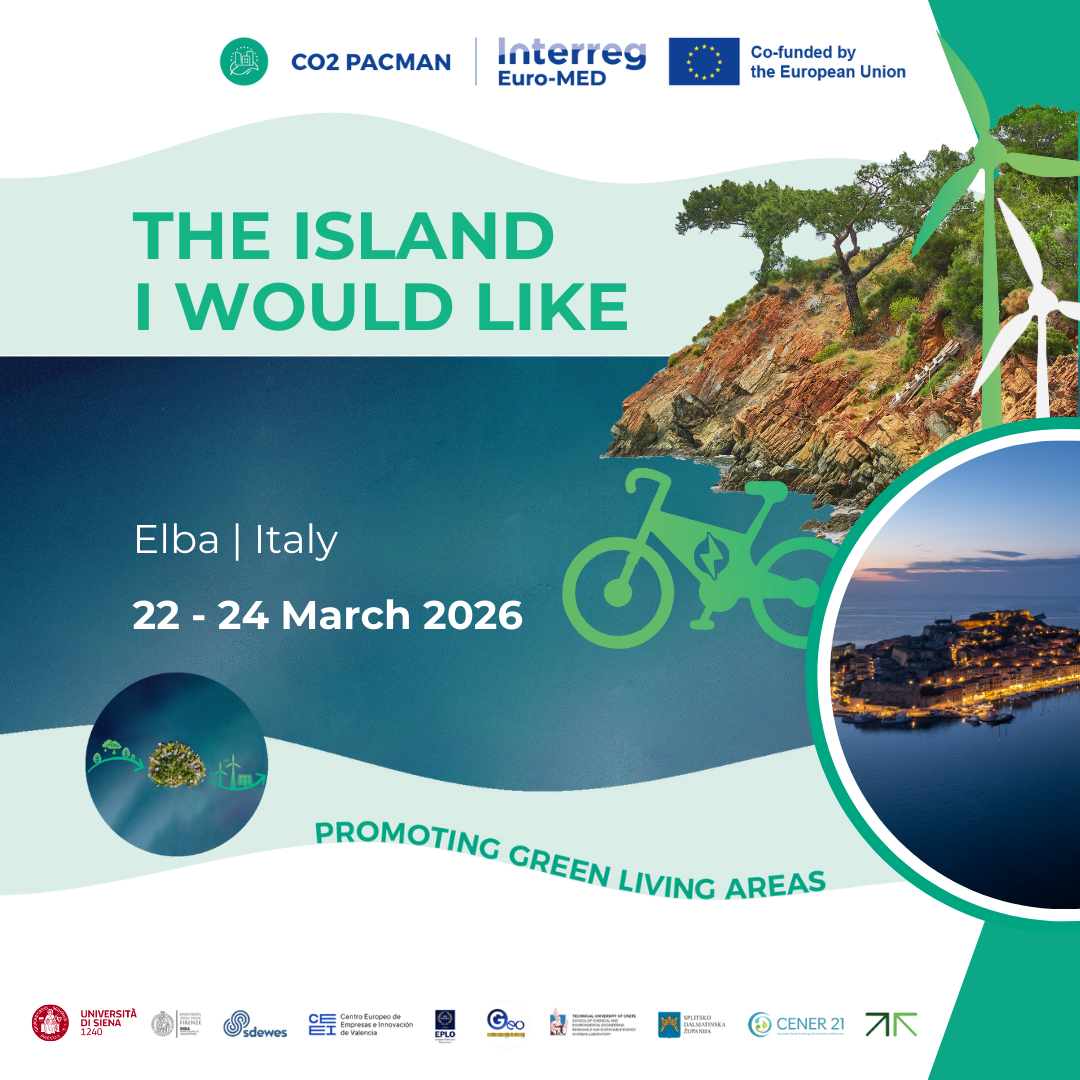
SAVE THE DATE: The Island I Would Like Elba
22–24 March 2026
The Island I Would Like Lab represents a key milestone and a moment of synthesis in the pathway launched by CO2 PACMAN on the Island of Elba. Scheduled from 22 to 24 March 2026, the Lab is dedicated to the co-creation of decarbonisation and sustainable development scenarios, bringing together scientific knowledge, territorial data, and the visions of the local community.
The Lab builds on the results achieved in the previous phases of the project: from the Rooting Labs, which enabled the collection of data, priorities, and critical issues directly from the territory, to engagement activities involving students, institutions, businesses, and citizens, which helped strengthen a shared vision for the island’s energy and environmental future. This work has consolidated local relationships, activated new collaborations, and created a shared knowledge base on which to build the next steps.
The Island I Would Like Lab translates these outcomes into a space for synthesis and advanced co-design, where scientific evidence and local insights are integrated to explore possible scenarios and guide the future transition roadmaps for the Island of Elba, strengthening the link between research, public policies, and local communities.

LISTEN TO THE CO2 PACMAN PODCAST
"CO2 PACMAN – Decarbonizing the Mediterranean Islands" is the podcast produced by uRadio and the University of Siena that takes you on a journey through co-creation pathways aimed at guiding the transition toward zero-emission Mediterranean islands. A journey through experiences, visions, and innovative solutions for a more sustainable future.
LISTEN TO THE INTERVIEW ON RAI RADIO 2
During the radio program Caterpillar - Rai Radio 2, on the occasion of the national day “M'illumino di Scienza”, Prof. Simone Bastianoni talks about the CO2 PACMAN project and the role of the CO2 PACMAN Tool in supporting territories towards climate neutrality.
THE PROJECT
BACKGROUND
The Mediterranean area is among the regions most vulnerable to climate change, facing rising temperatures and extreme events such as droughts and floods. These phenomena not only threaten ecosystems and biodiversity, but also jeopardize food and energy security. The CO2 PACMAN project directly addresses the shared challenge of making territories climate neutral by promoting sustainable and resilient communities. We provide the knowledge and tools necessary to implement integrated strategies and effective climate change mitigation policies.
At the same time, the project promotes multipurpose actions for climate change mitigation and adaptation, based on the use and enhancement of local knowledge and resources. It ensures inclusive and sustainable growth, guarantees energy security, and aims to improve quality of life, highlighting the deep interconnection between these challenges.
GENERAL OBJECTIVES
-
Innovation: Create a tool capable of planning the decarbonization of territories, with a particular focus on Mediterranean islands.
-
Co-creation: Develop scenarios toward climate-neutral communities in collaboration with local stakeholders.
-
Engagement: Involve public authorities, citizens, small and medium-sized enterprises (SMEs), and students in the decarbonization process of the target islands.
STUDYING APPROACH
CO2 PACMAN brings together project partners, as well as local and transnational stakeholders, in innovative design and planning practices to explore and validate potential solutions for the transition toward climate neutrality. It provides the tools to co-create and discuss various scenarios and strategies for concrete transition processes in the Mediterranean pilot islands. The project forecasts the following main innovative practices:
● CO2 PACMAN Rooting Labs. Three day workshops in pilot islands (Elba, Brac and Crete) made of co-working and interactive sessions involving project partners and local stakeholders for onsite investigations, data collection, knowledge sharing and discussion on specific potential solutions.
● CO2 PACMAN Tool. The Carbon Footprint of the island will be assessed and represented in terms of virtual forestland needed to absorb the equivalent amount of CO2 emission. The tool helps identify decarbonization scenarios and test the effectiveness of policies.
● Citizen Engagement. A set of activities, inspired by the BLUE DEAL “AskYourCitizenonBE” tool, will be defined to let citizen be the main actors in the participatory process and contribute to identify best chances for transition to a low-carbon economy.
● Youth Think Thank. Engagement of young students of secondary schools and universities of pilot islands and beyond called to co-create and represent their vision of a net zero carbon future.
● Open Innovation Collaborative Action. Engagement of technical and technological companies called to send their proposals in the field of renewable energies and ecosystem based solutions.
● 3D virtual reality experience. 3D simulations in a virtual world, containing landscapes, location specific objects and 3D intervention elements to help PAs, stakeholders and citizens visualize and assess potential installations and interact within a virtual environment for a highly engaging immersive experience.
● CO2 PACMAN “The Island I Would Like” Labs and transition Roadmap. Three-day workshops in pilot islands aimed at the presentation and the discussion of project results open to local stakeholders and citizens and synthesis of a climate neutral transition Roadmap.
MEETINGS AND EVENTS
-
Kick-off Meeting (March 20–22, 2024 – Siena). The Kick-off Meeting allowed the various project partners to meet and interact simultaneously, enabling effective collaboration from the very beginning of the project. During the roundtable held on the afternoon of the second day, participants shared success stories through firsthand accounts from those who have contributed—each in their own way—to approaching or even achieving climate neutrality in unique environments such as islands.
-
1st Rooting Lab (September 17–19, 2024 – Brač, Croatia) and 2nd Rooting Lab (October 8–11, 2024 – Crete, Greece). These two events marked a significant step forward in the journey toward a climate-neutral Mediterranean. The six days of intense collaboration and discussion (three in Brač and three in Crete) saw the active participation of citizens, academics, SMEs, local administrators, and students, all working together to find innovative solutions to reduce greenhouse gas emissions.
-
3rd Rooting Lab (February 11–13, 2025 – Elba Island and Florence). The final Rooting Lab, held in Italy, marked another crucial milestone. The initiative enabled the collection of data, insights, challenges, and opportunities directly from the territories involved, providing a solid foundation for the project’s next phases. The lab’s goals extended beyond technical aspects, aiming to build lasting relationships with institutions, businesses, and civil society actors committed to the ecological transition. One of the key outcomes was the renewed interest from regional bodies such as the Tuscany Region and ARRR (Regional Resource Recovery Agency), who expressed a willingness to continue collaborating with CO2 PACMAN, recognizing the value of its tools and participatory methods. The regional context also proved fertile for synergy with existing initiatives, such as the Province of Livorno’s sustainable mobility planning and links with other European projects. Important connections were also established on the island itself, such as the collaboration with the CEO of CER Elba Est-Ovest, who became a liaison between CO2 PACMAN and other local stakeholders. The lab stood out for the diversity of engagement methods. A particularly meaningful moment was the public aperitif with sustainability advocate Silvia Moroni, who made complex environmental topics more accessible to the general public. The project’s focus on youth continued with the Youth Think Tank, held the following month, which included visits to local initiatives such as Acqua dell’Elba and CER, to explore how best practices can be supported and scaled through the project.
-
Youth Think Tank (December 10, 2024 and March 11, 2025). The University of Siena, in collaboration with the University of Florence, organized two days of activities with students from I.S.I.S. Foresi in Portoferraio. Through engaging games and hands-on activities, the students were at the center of a dynamic learning experience, where critical thinking and peer-to-peer sharing played a key role.
Watch the 3° Rooting Lab video
Partners
Ecodynamics Group is lead partner (LP) of this project which includes other 10 partners from 7 countries in the MED area:
University of Siena
Siena, Italy
University of Florence
Florence, Italy
SDEWES
Zagreb, Croatia
CEEI
Valencia, Spain
EPLO
Athens, Greece
GEOIMAGING
Nicosia, Cyprus
TUC
Crete, Greece
Split Dalmatia Region
Croatia
CENER 21
Association Center for Energy, Environment and Resources
Bosnia-Erzegovina
GIITT
Varna, Bulgaria
Associated partners


